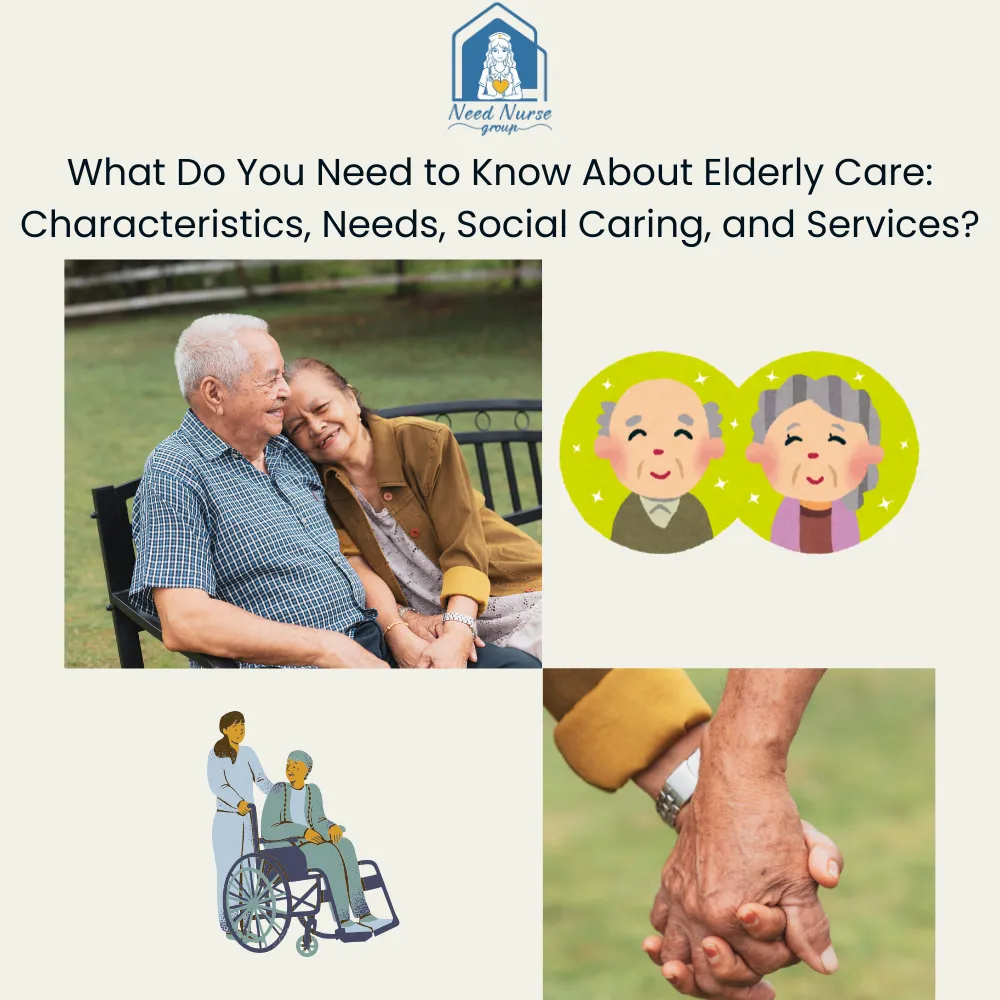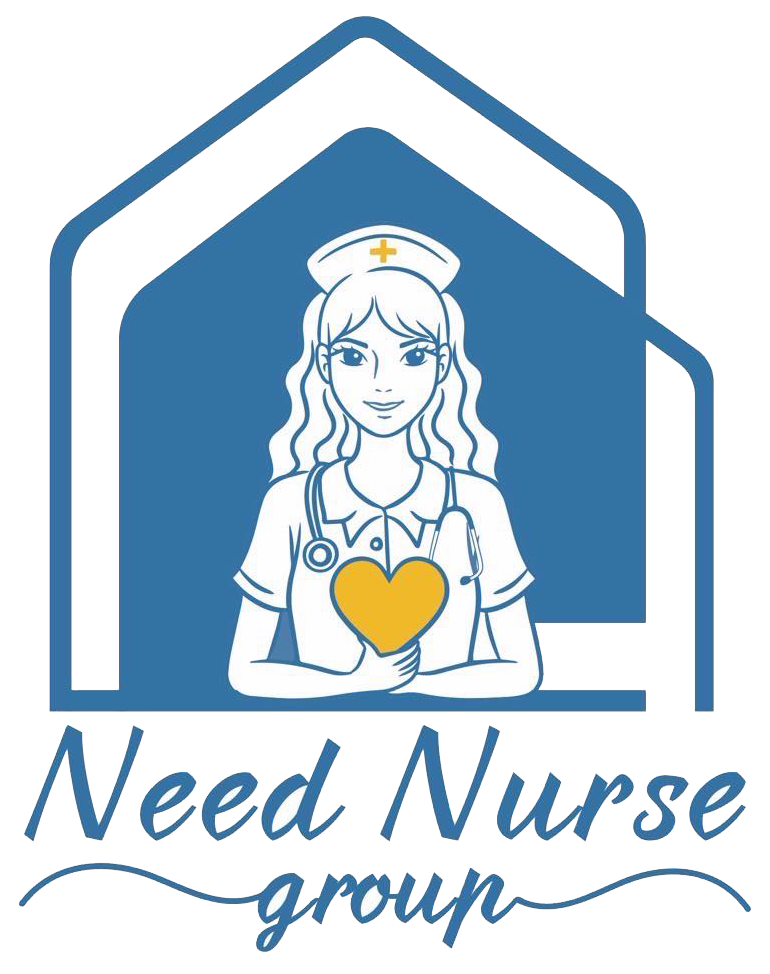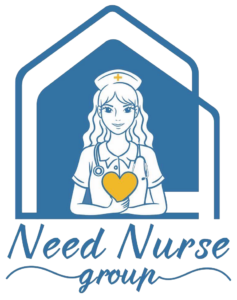
What Do You Need to Know About Elderly Care: Characteristics, Needs, Social Caring, and Services?
Elderly Care, also known as Eldercare, refers to the comprehensive support and services provided to older adults to address their characteristic, social, and healthcare needs as they age. This encompasses assistance with daily activities, medical care, emotional support, and ensuring safety and comfort, all aimed at enhancing the quality of life for the elderly. Linguistically, the term “elderly care” is a compound noun combining “elderly,” denoting older individuals, and “care,” indicating the provision of necessary assistance and support. The synonymous term “eldercare” is a portmanteau that merges these concepts into a single word, reflecting the integrated nature of services dedicated to the aging population. The language used in elderly care is crucial, as it can influence perceptions and interactions with older adults.
Elderly Care, often referred to as eldercare, encompasses a wide range of support services tailored to meet the physical, emotional, social, and practical needs of older adults. The following summary outlines the key aspects of elderly care, bridging the foundational understanding of its definition with actionable insights into its components.
The characteristics of the elderly include physical changes such as reduced mobility, sensory impairments, and increased vulnerability to chronic illnesses. These characteristics shape their needs, which focus on health management, emotional well-being, and maintaining independence. Ensuring access to preventive care, personalized medical support, and mental stimulation is critical for enhancing their quality of life.
Social caring plays a vital role, as elderly individuals benefit significantly from companionship and community interaction to prevent isolation. Structured social programs and family involvement foster a sense of belonging and purpose. Additionally, services such as in-home care, assisted living, and specialized medical care address both daily living requirements and long-term health challenges, offering tailored support for diverse circumstances.
Lastly, transportation is an essential component, enabling access to medical appointments, social engagements, and community activities. Reliable and elder-friendly transport solutions promote autonomy and ensure that older adults remain connected and engaged with their surroundings.
This interconnected framework of characteristics, needs, social care, services, and transportation highlights the holistic approach required for effective elderly care, reinforcing the core principles of dignity, safety, and quality of life.
Elderly care extends beyond basic support to encompass broader aspects like employment opportunities, legal protections, and engagement in meaningful activities, which collectively enhance their quality of life and societal inclusion.
The availability of suitable jobs for older adults promotes active aging and financial independence, with roles tailored to their skills and physical capacities. Laws play a critical role in safeguarding the rights of the elderly, ensuring access to healthcare, anti-discrimination protections, and social security benefits. Furthermore, Activities such as recreational programs, skill-building workshops, and community events encourage mental stimulation and social interaction, fostering a sense of purpose and belonging. Together, these aspects create a comprehensive framework that supports elderly individuals in leading dignified and fulfilling lives.
5 Characteristics of Older Adults (Elderly) in Different Health Care Contexts
The term “Elder” carries nuanced meanings across different contexts. It is often used to signify an older person but varies in connotation depending on the specific field or perspective. Below are definitions of ‘elder’ as it relates to terms like elderly, geriatric, senior, aged, and older person.
1.Understanding the Elderly: Health Care Needs and Defining Characteristics
In the context of healthcare, the term elderly refers to individuals typically aged 60 or 65 and older who often experience age-related physiological, cognitive, and emotional changes requiring specialized medical attention and support. You may asking “What You Should Know When You Become Elderly”.As people transition through different stages of elderly life, they encounter varying challenges and opportunities, necessitating a deeper understanding of their evolving needs. Elderly individuals are more prone to chronic conditions such as diabetes, hypertension, arthritis, and dementia, which highlights the importance of classifying elderly types based on physical and health conditions to tailor appropriate care plans. Regular health monitoring, preventive care, and management of comorbidities not only address specific health challenges but also underscore the benefits of health programs that enhance mobility, independence, and quality of life. Furthermore, the rising elderly population worldwide demands focused efforts to create a supportive environment that caters to their diverse needs effectively.
In terms of characteristics, the elderly often experience reduced physical strength, slower recovery times, and sensory impairments like diminished vision and hearing. Cognitive changes, ranging from mild forgetfulness to severe conditions like Alzheimer’s disease, may also occur. Emotionally, they may face challenges such as loneliness, anxiety, or depression, particularly if social interactions decrease. A holistic approach to elderly healthcare emphasizes personalized care, social engagement, and emotional support to promote overall well-being and dignity.
2.Geriatric Care: A Specialized Focus on Aging and Health
In healthcare, the term Geriatric specifically refers to the branch of medicine that focuses on the health and well-being of older adults, typically those aged 65 and above. Geriatric care addresses the unique medical, psychological, and social needs of aging individuals, emphasizing the prevention, diagnosis, and management of age-related conditions such as dementia, osteoporosis, arthritis, and cardiovascular diseases. It often involves interdisciplinary approaches, including input from physicians, nurses, therapists, and social workers, to ensure comprehensive care.
Characteristics of geriatric patients include increased vulnerability to chronic illnesses, reduced physiological resilience, and higher susceptibility to complications such as falls, infections, and cognitive decline. Emotional challenges, like coping with loss or adjusting to reduced independence, are also common. Geriatric care prioritizes improving quality of life, maintaining independence where possible, and offering holistic, patient-centered care that supports both physical and emotional well-being.
3.Senior Health: A Modern Perspective on Aging and Well-Being
The term senior is commonly used to refer to individuals aged 60 or 65 and older, particularly in the context of social and healthcare systems. In healthcare, seniors are recognized as a distinct demographic with specific needs, focusing on preventive care, chronic disease management, and promoting an active lifestyle to enhance their well-being. Senior health services often emphasize accessibility and community engagement, offering programs like wellness checks, vaccinations, and fitness activities tailored to older adults.
Characteristics of seniors include a wide range of physical and mental conditions depending on their age and lifestyle. While many seniors maintain independence and actively participate in social activities, others may face challenges such as reduced mobility, slower recovery from illnesses, and the onset of age-related conditions like arthritis or mild cognitive impairment. Emotional well-being is also a priority, as seniors may encounter loneliness or anxiety, especially in the absence of strong social networks. Healthcare for seniors aims to provide a balanced approach, integrating medical care with social and emotional support to ensure a healthy and fulfilling life.
4.Health Care for the Aged: Addressing the Complexities of Advanced Years
The term aged generally refers to individuals who are significantly advanced in years, often those in their late 70s, 80s, and beyond, and is frequently used in healthcare and policy discussions. In the context of healthcare, the aged population is a group that requires specialized attention due to the cumulative effects of aging on the body and mind. Their care typically includes management of multiple chronic conditions, palliative care for advanced illnesses, and preventive measures to maintain quality of life. Services such as mobility support, medication management, and regular health monitoring are crucial for this demographic.
Characteristics of the aged often include reduced physical resilience, frailty, and higher vulnerability to infections and injuries. Cognitive decline, ranging from mild forgetfulness to dementia, is also more prevalent in this age group. Socially, the aged may experience isolation or reduced engagement, especially if they live alone or in institutional settings. Healthcare for the aged focuses on holistic care approaches that integrate medical, emotional, and social support, aiming to preserve dignity and provide comfort in the later stages of life.
5.Old Person: A Holistic Approach to Health Care and Aging
The term old person is a neutral and inclusive descriptor used to refer to individuals in the later stages of life, often aged 60 and above. In healthcare, it encompasses a broad spectrum of needs ranging from preventive care to managing age-related conditions like arthritis, hypertension, and cognitive impairments. The focus for old persons in healthcare is on maintaining independence, addressing chronic conditions, and promoting a good quality of life through personalized care plans and accessible services.
Characteristics of old persons vary widely, reflecting diverse aging processes. Many maintain physical and mental activity, while others may experience reduced strength, slower healing, or cognitive decline. Emotional well-being is a key aspect, as some old persons face challenges like loneliness or adapting to life changes, including retirement or the loss of loved ones. Healthcare for old persons emphasizes preventive measures, such as regular check-ups and vaccinations, while integrating social and emotional support to ensure a balanced and fulfilling life.
What Should You Consider for the Needs of the Elderly?
Understanding and addressing the needs of the elderly is crucial for promoting their well-being and quality of life. As individuals age, they often experience changes in physical health, cognitive function, and social dynamics, necessitating comprehensive support. A study titled “Assessing needs from patient, carer and professional perspectives: the Camberwell Assessment of Need for Elderly people in primary care” by Kate Walters et al., published on November 1, 2000, emphasizes the importance of evaluating needs from multiple perspectives to provide effective care. Additionally, the research “Understanding the care and support needs of older people: a scoping review and categorisation using the WHO international classification of functioning, disability and health framework (ICF)” by Sarah Abdi et al., published on July 22, 2019, categorizes these needs into specific areas.
Key Needs of the Elderly:
- Physical Health Support: Management of chronic conditions, mobility assistance, and access to healthcare services.
- Psychological Well-being: Addressing mental health issues such as depression and anxiety, and providing cognitive stimulation.
- Social Engagement: Opportunities for social interaction to combat loneliness and isolation.
- Daily Living Assistance: Help with activities of daily living (ADLs) like bathing, dressing, and meal preparation.
- Safety and Security: Ensuring a safe living environment to prevent accidents and injuries.
- Information and Communication: Providing clear information about available services and facilitating effective communication channels.
- Emotional Support: Offering companionship and emotional reassurance to enhance overall well-being.
By systematically assessing and addressing these areas, caregivers and healthcare professionals can develop tailored care plans that meet the comprehensive needs of elderly individuals, thereby enhancing their quality of life.
How Can Social Support Enhance the Well-Being of the Elderly?
What Are the Available Solutions to Support the Elderly Effectively?
Effectively supporting the elderly requires a multifaceted approach that addresses their diverse needs. Research has identified several key solutions to enhance the well-being and quality of life for older adults:
- Technological Interventions: The integration of assistive technologies, such as smart home systems and wearable devices, can promote independence and safety among the elderly. A study titled “Technology and Caregiving: Emerging Interventions and Directions for Research” by Sara J. Czaja et al., published in 2020, discusses the potential of these technologies in caregiving contexts.
- Social Engagement Programs: Initiatives that encourage social interaction, such as community groups and befriending services, help reduce loneliness and social isolation. The scoping review “Loneliness and social isolation interventions for older adults” by Hannah B. Mann et al., published in 2020, categorizes various interventions aimed at mitigating these issues.
- Comprehensive Needs Assessment: Utilizing tools like the Camberwell Assessment of Need for the Elderly (CANE) ensures that care plans are tailored to individual requirements. The study “Assessing needs from patient, carer and professional perspectives: the Camberwell Assessment of Need for Elderly people in primary care” by Kate Walters et al., published in 2000, highlights the importance of multi-perspective evaluations.
- Physical Activity Programs: Structured exercise regimens improve physical health and mobility. The article “A consensus on healthy ageing” by Public Health England, published in 2022, emphasizes the role of physical activity in promoting healthy aging.
- Mental Health Support: Providing access to counseling and mental health services addresses psychological well-being. The World Health Organization’s initiative “Reducing social isolation and loneliness among older people,” published in 2020, discusses interventions that support mental health.
- Caregiver Training and Support: Educating caregivers enhances the quality of care provided to the elderly. The article “Technology and Caregiving: Emerging Interventions and Directions for Research” by Sara J. Czaja et al., published in 2020, explores the role of technology in supporting caregivers.
- Policy and Community Initiatives: Developing age-friendly policies and community programs fosters an inclusive environment for older adults. The article “A consensus on healthy ageing” by Public Health England, published in 2022, outlines strategies for creating supportive communities.
Implementing these solutions, supported by research, can significantly improve the effectiveness of elderly care.
What Are the Different Types of Care Available for the Elderly?
When considering care options for the elderly, it’s essential to evaluate the various services available, each with its own advantages and disadvantages. Below is an overview of common elderly care services, along with their respective pros and cons, supported by statistical data and sources.
In-Home Care
Pros:
- Comfort and Familiarity: Allows seniors to remain in their own homes, which can enhance emotional well-being.
- Personalized Care: Care plans tailored to individual needs and preferences.
- Family Involvement: Enables family members to participate actively in care.
Cons:
- Cost: Can be expensive, especially for 24/7 care. The median annual cost for full-time in-home care in the U.S. is approximately $54,912.
- Limited Medical Support: May not provide the same level of medical care as specialized facilities.
- Caregiver Availability: Challenges in finding reliable and qualified caregivers.
Assisted Living Facilities
Pros:
- Social Interaction: Opportunities for socialization with peers.
- Structured Environment: Provides assistance with daily activities while promoting independence.
- Amenities: Access to various services like meals, housekeeping, and recreational activities.
Cons:
- Cost: The average monthly cost is around $4,300, varying by location and services.
- Limited Medical Care: Not equipped for individuals requiring intensive medical attention.
- Adjustment Period: Transitioning from home to a facility can be challenging for some seniors.
Nursing Homes
Pros:
- Comprehensive Medical Care: 24/7 access to medical professionals and specialized care.
- Safety: Designed to accommodate individuals with significant health issues.
- Rehabilitation Services: Offers physical, occupational, and speech therapy.
Cons:
- Cost: The average annual cost for a private room is about $105,850.
- Institutional Environment: May feel less personal and homely.
- Quality Variability: Quality of care can vary between facilities.
Adult Day Care Centers
Pros:
- Affordability: Average daily cost is approximately $75, making it a cost-effective option.
- Social Engagement: Provides social activities and structured programs.
- Respite for Caregivers: Offers relief for family caregivers during the day.
Cons:
- Limited Hours: Typically operate only during standard business hours.
- Transportation Needs: Requires reliable transportation to and from the center.
- Not Suitable for All: May not be appropriate for individuals with severe medical conditions.
Hospice Care
Pros:
- Comfort-Focused: Emphasizes pain management and quality of life for terminally ill patients.
- Emotional Support: Provides counseling and support for patients and families.
- In-Home Availability: Can be provided at home, in hospice centers, or within hospitals.
Cons:
- Eligibility Criteria: Typically requires a prognosis of six months or less to live.
- Limited Curative Treatment: Focuses on palliative rather than curative care.
- Emotional Challenges: Can be emotionally taxing for families and caregivers.
Continuing Care Retirement Communities (CCRCs)
Pros:
- Comprehensive Services: Offers a continuum of care from independent living to skilled nursing.
- Community Living: Provides a sense of community and belonging.
- Long-Term Planning: Allows residents to age in place without relocating.
Cons:
- High Entry Fees: Entrance fees can range from $100,000 to $1 million, plus monthly fees.
- Complex Contracts: Contracts can be complex and require careful review.
- Financial Commitment: Significant financial commitment with potential for fee increases.
When selecting an appropriate care option, it’s essential to consider the individual’s health status, personal preferences, financial situation, and the quality of available services. Engaging with healthcare professionals and care coordinators can aid in making informed decisions tailored to the specific needs of the elderly individual.
Why Is Transportation an Essential Part of Elderly Care?
Transportation is a crucial component of elderly care, as it directly influences access to healthcare services, social engagement, and overall quality of life for older adults. The consensus statement titled “A Consensus Statement on Nonemergent Medical Transportation Services for Older Persons,” authored by the American Geriatrics Society’s Public Policy Committee and published in 2003, emphasizes the importance of reliable patient transportation in ensuring that older individuals can attend medical appointments, participate in community activities, and maintain independence. The statement highlights that inadequate transportation options can lead to missed medical appointments, delayed treatments, and increased isolation, ultimately affecting the health and well-being of the elderly population. Therefore, developing and implementing effective transportation services tailored to the needs of older adults is essential for promoting their health and social inclusion.
How Do Elderly Care Services Differ from the Role of an Elderly Caregiver?
Elderly care services encompass a range of organized support systems designed to meet the diverse needs of older adults, including medical care, assistance with daily activities, and social engagement opportunities. These services are typically provided by institutions, agencies, or community organizations, emphasizing a structured and multifaceted approach to elder care.
In contrast, an elderly caregiver refers to an individual such as a family member, friend, or professional who directly provides personal care to an older person. This role highlights the personal and relational aspect of caregiving, focusing on one-on-one support and assistance.
Linguistically, “Elderly Care Services” suggests a comprehensive, systematized approach involving multiple providers and resources, while “Elderly Caregiver” centers on personal responsibility and direct interaction between the caregiver and the care recipient.
Understanding this distinction is crucial for effectively addressing the specific needs of the elderly, as it informs the allocation of resources and the development of appropriate support mechanisms.
How Can Meaningful Activities or Jobs Improve the Lives of the Elderly?
Engaging in meaningful activities or employment can significantly enhance the lives of elderly individuals by promoting physical health, mental well-being, and social connectivity. Participation in purposeful tasks helps maintain cognitive functions, reduces the risk of depression, and fosters a sense of accomplishment. For instance, involvement in social activities has been linked to better thinking skills and slower cognitive decline in later life.
Moreover, employment opportunities tailored to Elderly not only provide financial benefits but also instill a renewed sense of purpose and identity, making them feel more alive and engaged. This active involvement combats feelings of isolation and reinforces their role within the community, ultimately contributing to a more fulfilling and vibrant life in their later years.
What Legal Protections and Rights Should the Elderly Be Aware Of?
Elderly individuals should be aware of several key legal protections and rights designed to safeguard their well-being and dignity. These include:
Protection Against Age Discrimination: Laws such as the Equality Act 2010 in the UK prohibit discrimination based on age in various sectors, including employment and the provision of goods and services.
Safeguarding from Abuse and Neglect: Legal frameworks are in place to protect older adults from abuse and neglect. For instance, the Care Act 2014 in the UK mandates local authorities to investigate and act upon concerns of abuse or neglect involving vulnerable adults.
Rights to Social Protection and Care: International instruments like the European Social Charter recognize the right of elderly persons to social protection, obliging parties to implement measures ensuring access to adequate services and support.
Human Rights Protections: The Human Rights Act 1998 in the UK incorporates the European Convention on Human Rights into domestic law, ensuring that older individuals enjoy fundamental rights such as the right to life, freedom from degrading treatment, and respect for private and family life.
Being informed about these legal protections empowers elderly individuals to advocate for their rights and seek appropriate support when necessary.
When Should You Consider Hiring an Attorney for Elder Care Matters?
An elder law attorney specializes in legal issues affecting older adults, including estate planning, long-term care arrangements, guardianship, and protection against elder abuse. Engaging such a professional is advisable in several scenarios:
Estate Planning: When drafting or updating wills, trusts, and advance directives to ensure your assets are managed and distributed according to your wishes.
Long-Term Care Planning: When navigating options for future care needs, including understanding Medicaid eligibility and planning for potential nursing home expenses.
Guardianship Matters: If a loved one becomes incapacitated and cannot make decisions independently, an elder law attorney can assist in establishing legal guardianship.
Protection Against Abuse: In cases of suspected elder abuse or financial exploitation, legal intervention may be necessary to safeguard the individual’s well-being and assets.
Consulting an elder law attorney in these situations ensures that legal matters are handled appropriately, providing peace of mind and protecting the rights and interests of older adults.
How Can Engaging Activities Complement Legal and Care Planning for the Elderly?
Engaging activities play a crucial role in enhancing the well-being of elderly individuals and can significantly complement legal and care planning efforts. Common daily activities for seniors include physical exercises like walking or gardening, social interactions through community events or group hobbies, and cognitive engagements such as puzzles or reading. Incorporating these activities into a comprehensive care plan not only promotes physical and mental health but also aligns with legal frameworks that emphasize person-centered care. For instance, the Care Quality Commission’s Regulation 9 mandates that care providers deliver person-centered care, taking into account individual preferences and needs.By integrating meaningful activities into care plans, caregivers ensure compliance with such regulations, thereby upholding the legal rights of the elderly to receive tailored and respectful care.





